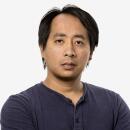Holocaust survivor inspires hope in the face of hate, urges people to learn from the past
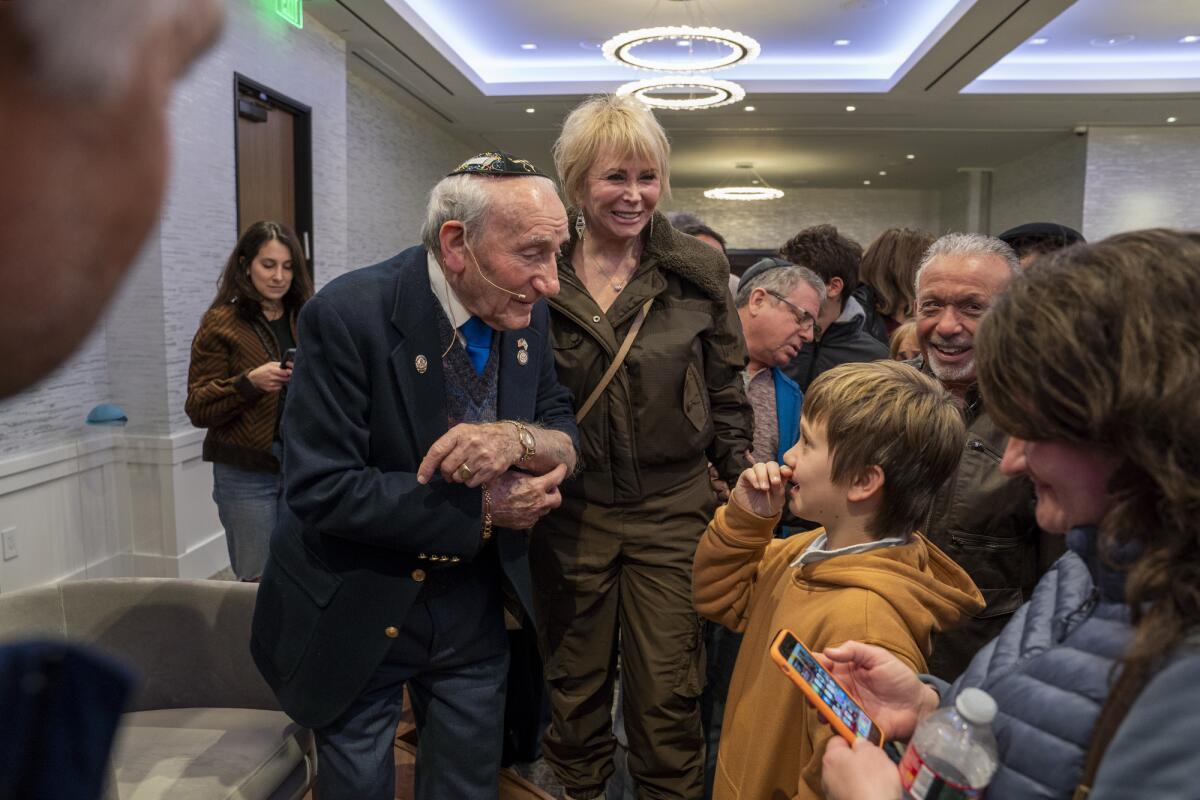
- Share via
Some smiled affectionately as 100-year-old Joseph Alexander fumbled through a suitcase filled with article clippings, documents and photographs while sitting onstage at the Chabad Center for Jewish Life of Newport Beach Sunday evening. The Holocaust survivor found a wallet containing several black and white pictures of his parents and siblings and held them over his head for the audience to see.
“I wouldn’t know where to start; I would be very happy if I, just, even if I could speak to one member of my family,” he said. “I would be very happy. But unfortunately, I can’t. I have to speak for them. Not just for them, I need to speak for 6 million Jews because they can’t talk.”
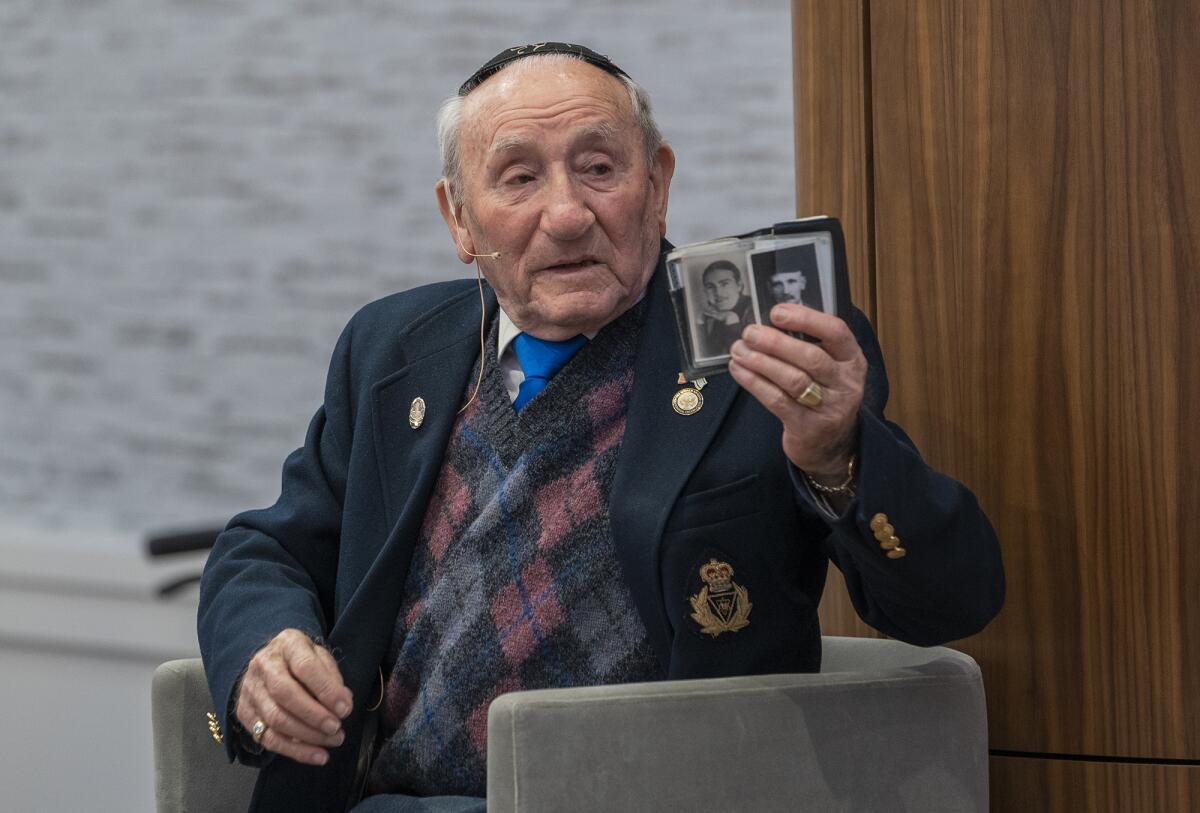
Alexander is among a shrinking group of people who were subjected to the horrors of the Holocaust and lived to tell about it. He has been sharing his story for decades in an effort to prevent anyone else from experiencing anything like what he went through. More than 200 people filled Sunday’s venue to listen to him.
“It makes me feel encouraged,” Edie Mermelstein, daughter of the late Holocaust survivor Mel Mermelstein, said in response to the large number of people who turned out for Alexander’s talk. “In a time we’re living now, it’s good to see that there is not just an interest, but a desire to learn and understand, to somehow grasp the concept so we don’t have something like this happen again.”
Prior to hearing from Alexander, attendees were given a tour of Chabad of Newport Beach’s Holocaust Education Center, which is home to hundreds of items taken from the concentration camps that were collected by Mel Mermelstein. Rabbi Reuven Mintz invited people to touch the pieces and lean in to examine their details in order to build a physical connection with the experience of survivors, just as Mermelstein intended.
Victoria Lerman Gillis’ 13-year-old son, Marc, ran his fingers over the mouth of a shattered vase as he stared thoughtfully at bullet casings, discarded shoes and remnants of electrified fencing Sunday evening. She said it was important that her children learn about what happened to their ancestors, and not just because their grandparents were among the scores of Jews who suffered at the hand of the Nazis. She wanted her sons to be equipped with the truth in the face of those who continue to deny the Holocaust.
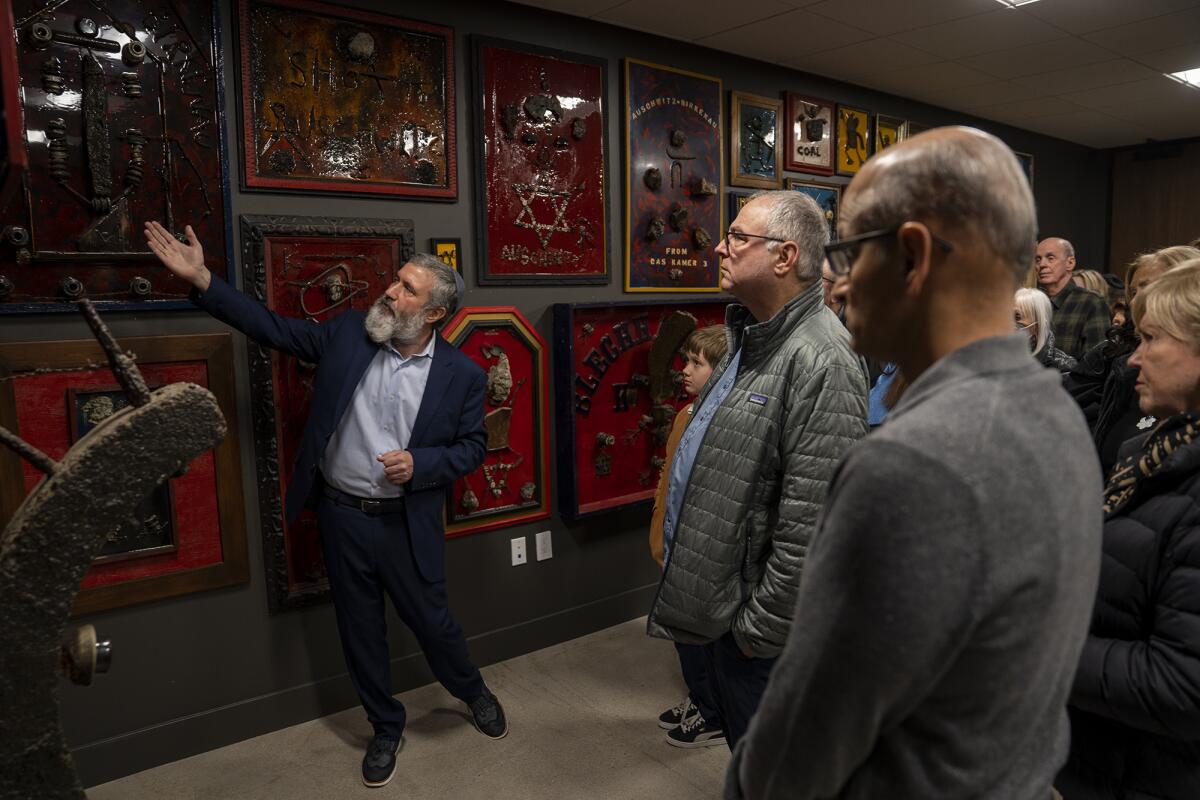
“Of course I teach my children to question everything, but this is just beyond skepticism,” Lerman Gillis said. “Knowing the experience of my parents, it’s crazy and makes me sad, frustrated and angry all at once that there are still people out there claiming it never happened.”
Attendees of Alexander’s talk on Sunday included several who also endured atrocities inside the concentration camps, as well as many whose parents or grandparents were rounded up as scapegoats by the Third Reich. Several of them joined Alexander in lighting six candles in remembrance of the six million Jews killed during World War II before he began his presentation.
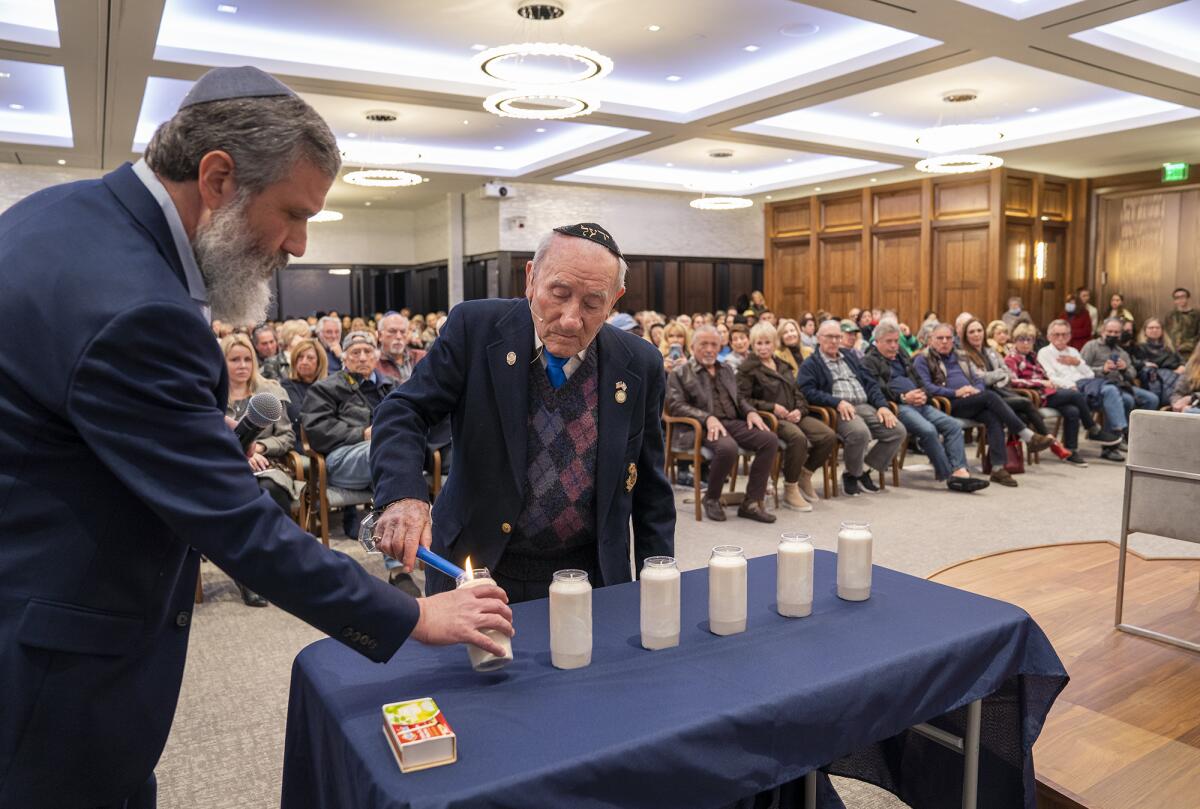
After the Nazis invaded Poland, Alexander, his mother, father and five brothers and sisters were shipped to the Warsaw Ghetto, where he recalled witnessing people dying in the streets on a daily basis, he said Sunday. He was eventually sent to Auschwitz and 11 other concentration camps where he saw hard labor and subsisted on just enough food and water to survive. He once caught typhus and hid his illness from his captors rather than going to an infirmary, because “everyone else who checked in with the doctors, they never came back,” he said.
Near the end of the war, Alexander was among thousands who were forced to march from the camp in Dachau to the German town of Tergensee. He could hear Nazi forces fighting American troops behind them and saw Allied aircraft flying overhead before they were liberated en route to what was supposed to be the site of their execution.
He’s the sole member of his immediate family to live through the Holocaust and regain his freedom. He spent several years in Europe afterward, but never managed to find out exactly what became of them after they were separated.
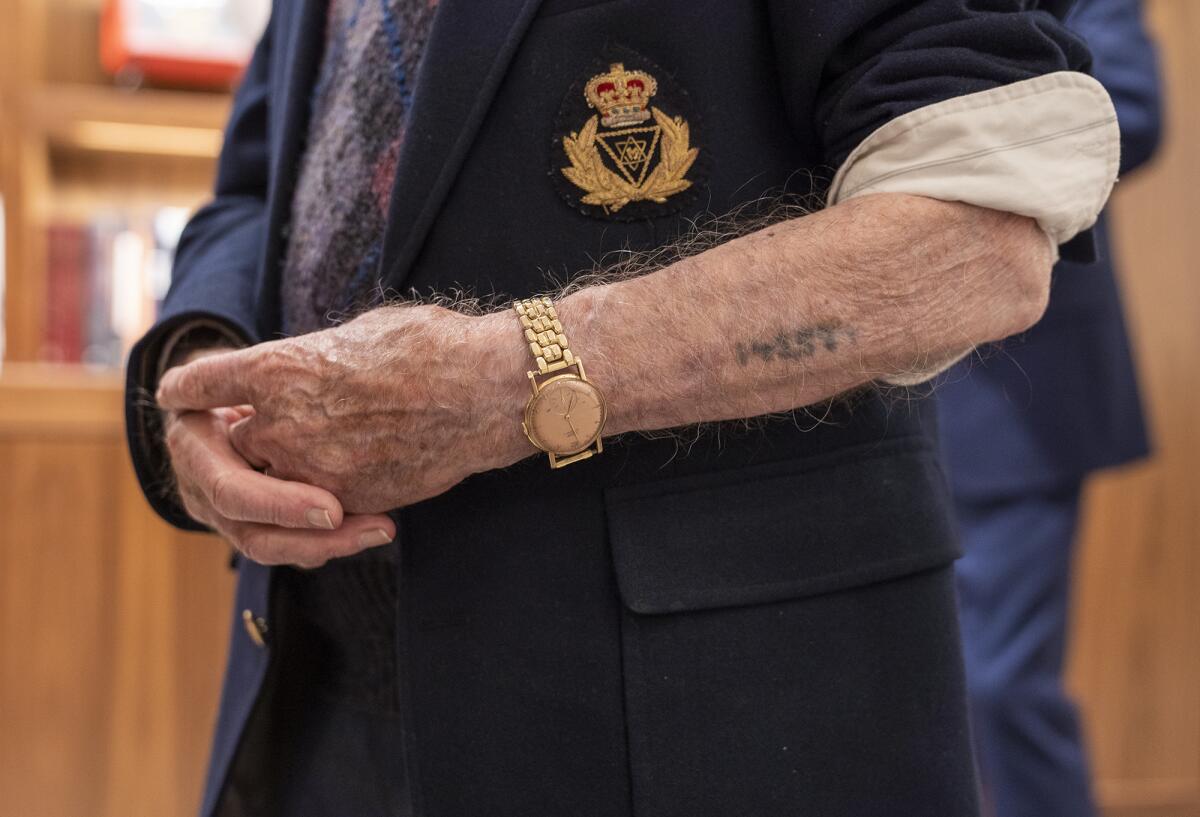
Alexander said it was difficult to talk about what he and his loved ones went through in the years immediately following the war. He added that even after moving to the U.S., he and others who emigrated from Europe like him faced resistance when trying to share their stories from Americans eager to forget about such a dark chapter in human history.
But things changed in the 1960s as groups of survivors began to band together in the face of ongoing antisemitism and denial. It was about then that Alexander decided he owed it to his loved ones to speak out.
Despite everything he saw and suffered through, Alexander said he never gave up.
He told the audience that only one out of every six people held at the camps was given a blanket to stave off bitter European winters, and he never saw anyone try to keep it for themselves. Instead they would drape it over their neighbors to help each other make it through the night, reminding Alexander that kindness and decency can persist even in the most horrific situations.
“Tonight, I give a blanket to each of you,” he said, “and ask and ask you to wrap it around your neighbors as well.”
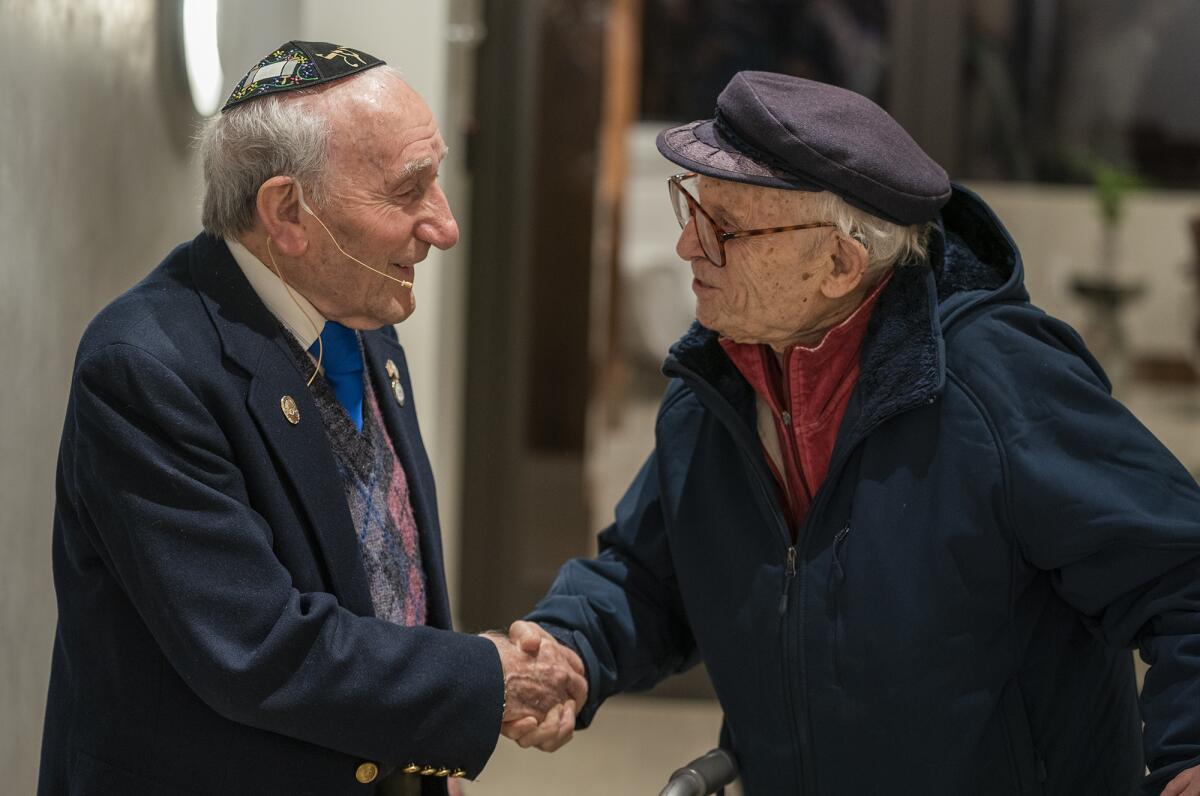
All the latest on Orange County from Orange County.
Get our free TimesOC newsletter.
You may occasionally receive promotional content from the Daily Pilot.
